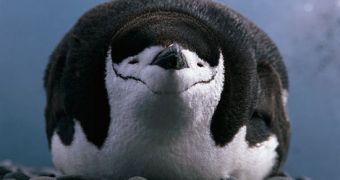Up until now, most environmental campaigns have been directed at safeguarding the Arctic region and the animal species living in this part of the world.
Thus, it was believed that, as opposed to the Antarctic, the northern frozen waters were far more susceptible to the effects of climate change and global warming.
However, one recent study indicates that the Antarctic region is also beginning to respond to the on-going changes in terms of global environmental conditions, meaning that several species living here were found to have suffered a decline in their population.
More precisely, a report recently published in the journal Polar Biology argues that, as compared to headcounts carried out in 1986-1987, the chinstrap penguin population in the Antarctic Peninsula has been reduced by as much as 50%.
Researchers claim that this is because climate change caused these animals to have lass food available.
More precisely, a steady decline in the krill population in these regions lead to this species no longer being able to breed and raise its young as efficiently as in the past, which is why the existing colonies have diminished to a considerable extent.
According to About My Planet, concerns were also raised with respect to how tourist activities carried out in these waters might have disturbed the demographics of the chinstrap penguin population.
However, it was found that tourist ships alone could not have had such a devastating effect on the local penguin population.
According to the same source, what needs be blamed is the fact that, as a result of rising greenhouse gas emissions and the effects these have on natural ecosystems, our planet's biodiversity map is undergoing significant changes.
Given the fact that, as this study shows, global warming is also beginning to affect areas which have previously remained oblivious to its effects, efforts to push for the use of renewable energy sources and cutting down on the use of fossil fuels seem to us like the wisest of choices.

 14 DAY TRIAL //
14 DAY TRIAL //